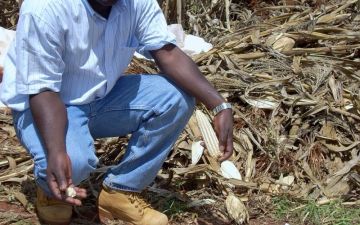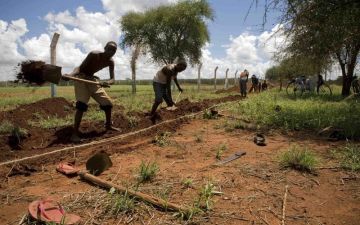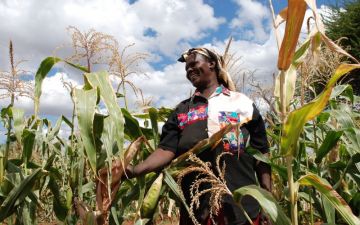For Americans, corn is a crop that's fed to livestock, fermented into motor fuel or turned into a cheap sweetener. To millions of Africans, corn, or maize as they know it, is a staple food for people of all economic classes. But African farmers already struggle to grow sufficient maize, which is a thirsty, fertilizer-hungry crop. What will happen as the climate changes and the population grows? Kenya alone is expected to need nearly three times as much maize to feed its population in 2050 as it does today.
Successive U.S. administrations have joined American agribusiness interests in arguing that Africans must drop their opposition to genetically modified crops if the continent is going to feed its growing population.
The Bill and Melinda Gates Foundation is funding research that is using technology from biotech giant Monsanto Co. to engineer maize that's much more resistant to drought than conventional varieties. Bill Gates says these new seeds will be vital to boosting African food production. But the crop also would serve the U.S. industry's geopolitical interests: It will be tougher for Europeans to continue resisting biotech food if there is a new GM crop that could be vital to the survival of poor Africans.
But agricultural experts agree that high-tech, high-yielding seeds won't be nearly enough, not when African farmers, who are mostly female, lack the bare essentials of agriculture: access to fertilizer, places to store their crops, adequate roads and dependable markets.


